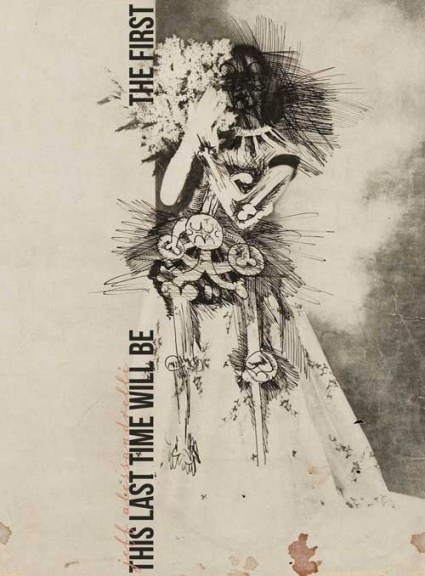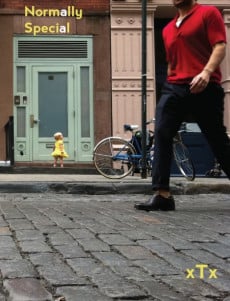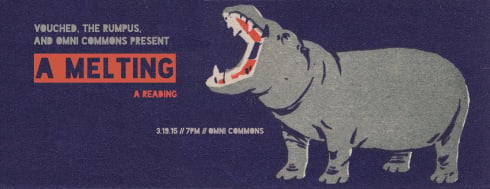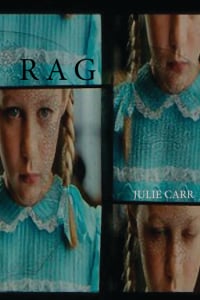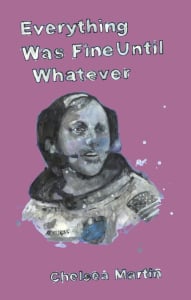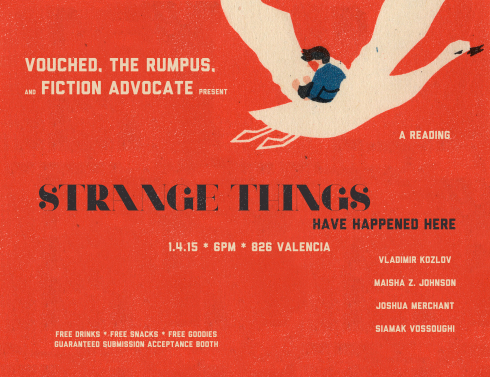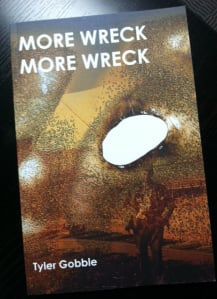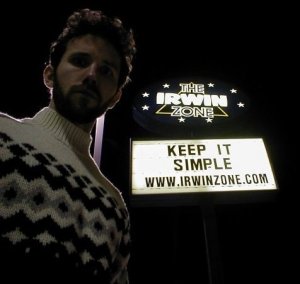 This is Jon Irwin. He wrote a book about Super Mario 2 for Boss Fight Books, and has a lot of things to say about video games in general. He also happens to be reading at the Phoenix Festival today in Atlanta! You should come see!
This is Jon Irwin. He wrote a book about Super Mario 2 for Boss Fight Books, and has a lot of things to say about video games in general. He also happens to be reading at the Phoenix Festival today in Atlanta! You should come see!
Vouched: So Jon, you’ve written a book about Super Mario 2. Can we talk a little bit about the Princess in that game? Also, why Super Mario 2? Why not the RPG Super Mario and the Legend of the Seven Stars? Princess Peach fought with a frying pan in that one, which I find more than a little misogynistic. I’d love to hear your thoughts on that.
You want female stereotypes? Go play Super Princess Peach, a game for the Nintendo DS where the Princess finally gets her first starring role. Instead of running or jumping, she uses her “power of emotion” to defeat enemies. Specifically: Joy, Gloom, Calm, and Rage. If you activate her Rage power, she catches on fire (the better to burn up baddies). Use the Princess’s Gloom power and she begins to cry; the tears hit the ground and cause plants to grow, giving you platforms on which to jump and reach new areas. On one hand, the use of emotions as actual gameplay mechanic is rather brilliant and like no other game I’ve played. But then there’s the whole “self-immolation” thing and the depiction of women as overly emotional tear buckets. What’s that? Answer the first question, you say? Why yes, let’s re-focus our attentions…
Gabe Durham, editor and co-founder of Boss Fight Books, reached out to me after reading some of my game criticism and essays in Kill Screen’s print magazine and daily website. He was starting this new press inspired by the 33 ⅓ series, where an author writes a short-ish book about a single music album. He thought the same model would work for video games. So last summer, he got in touch with prospective authors and laid the groundwork for a Kickstarter campaign to help the press get off the ground. (A campaign for Season Two is taking place now.) I was the last author he contacted; he wanted a book focused on a big franchise, something mainstream and something most people, avid gamers or not, were familiar with. The Super Mario franchise is one of, if not the biggest one out there. But the first sequel for the NES also has a weird history and has always been thought of as an outlier in the series since it looks and plays so differently. I thought the game had an interesting story to tell.
Vouched: It certainly does! What are some other video games that you believe deserve a time to shine. You know, maybe ones from less heralded series? I’ve got a lot to say about the entire Kings Quest series, as well as Myst/Riven, Lunar Silver Star Story, and Chrono-Cross.
Oh man. There’s so many crazy-interesting games. Gabe’s press could run for a hundred years and still have ample and worthy subjects. I’d love to read a book about the Rhythm Heaven or WarioWare games. Each are made by the same studio, and each are bizarre, frantic, and surprisingly skill-based. Rhythm Heaven is centered on keeping time with music, and WarioWare is more about instinct and quick decisions. Both have this zany humor that is also very sweet, a marked difference between the cynical, sarcastic humor one sees in a lot of “funny” games. The creators clearly care about things outside of gaming culture, which shows in the musicianship and variety of visual influences, and I’d love to hear how something so rich and weird and unique to an interactive medium (WarioWare could never be a film; the audience would go into epileptic fits) gets made.
I think video game culture is rife with fascinating stories to tell, and this goes beyond single games. The hardware itself can be a great foundation for narrative, between the building of its technology and the marketing of it as a consumer product to the people behind the scenes who orchestrate it all. I’d devour a book about the TurboGrafx-16, a system nobody talks about that competed with the SNES and the Sega Genesis. It tanked in America but was a huge success in Japan (known there as the PC-Engine). I had one as a kid and still have an odd fondness for it. In fact Ian Bogost, professor at Georgia Tech, co-edits a series that investigates computer hardware in this way, called Platform Studies. The high water mark for such writing, in my eyes, is still The Soul of a New Machine by Tracy Kidder. It’s about bringing a new computer to market in the ‘80s. The summary sounds dry and insider-y, but Kidder’s story is totally accessible, a fantastic, page-turning human drama.
Vouched: What’s so evocative about it for you? Would you write a Single Sentence Review of it for us? Right here right now?
“”The Soul of a New Machine by Tracy Kidder is about bringing a new computer to market in the ‘80s, and while the summary sounds dry and insider-y, Kidder’s story is totally accessible, a fantastic, page-turning human dram.”
That’s the Jerk Answer. Here’s another attempt:
“In Kidder’s Machine, we learn that what we build, using silicon and plastic, is no different than what we build with chromosomes and DNA: our inventions are our children, and they outlive us all.” Or something.
Vouched: Ha! Totally fair. Say, wouldn’t it be creepy to have a robot for a kid?
Oh, I don’t know. A “Sleep” button for restful nights. Duracell AA batteries for food. The high school track record in the 100M! Maybe having a robot would be awesome.
I really like the movie Artificial Intelligence, or A.I — you know, the one where Haley Joel Osment is a robot-child after a couple loses their real child in a pool accident. Was it a pool accident? I forget. Anyway, point is, lots of people railed on that movie for being over-long and too sentimental. But it’s also kind of messed up and presages a not-so-unrealistic future where people are engineered and manufactured. A hundred years ago farmers probably didn’t think potatoes could be “genetically modified.” Today robot-children seem like some Asimovian bedtime story to freak kids out you’re babysitting, but who knows? Maybe in another hundred years it’ll be common.
A question for you! Why “Awful Interviews,” and not Terrible ones? Or Interminable Interviews? I have the phrase “Awful Annie” in my head, and I’m wondering if that’s some doll from when we were kids… but then I Google’d it and apparently there’s a restaurant with that name and they have “the best omelets in town.
Vouched: Oh, I don’t know, awful ain’t the worst, but it ain’t great either. I like occupying that strange middle territory. Is this not awful enough? Or is it too terrible?
Is that your next question? Is the antecedent of “this” in “Is this not awful enough?” our actual interview? Or are you referring to a hypothetical interview, the platonic INTERVIEW you had in mind when creating and naming said “Awful Interviews”?
In case of the former: Yes. This is awful enough.
But yeah, I’m all about the strange middle territory. My wife’s belly-button is like some undiscovered landmark tucked away in a deciduous forest, hiding in the corner of a western state, let’s say Montana. Soft and undulating. But with a kind of mysterious depth. Like: Does it stop there? Or does it go on?
Okay. NOW this is awful enough.
Vouched: Shit just got awkward. This is wonderfully awful, indeed! Say, are you pumped for Phoenix Fest? Tell us about it!
I’m so pumped. Did you know there’ll be live glass-blowing demonstrations? Glass-blowing! I love how the readings are a part of this larger melange of artwork going on throughout the day. Music! Glass! Murals! And good ol’ fashioned spoken words. A little for all the senses. Wait–will there be tastings? I think “taste” has been left out. This is a travesty. Since I’ll be reading from my book Super Mario Bros. 2, and since a notable item in that game is the turnip, I request some ambitious festival-goer to whip up an exotic turnip dish and serve it to happy passers-by. Perhaps turnips could take the place of potatoes in a delicious mashed turnip souffle? Or roasted turnips, the natural sugars carmelizing under the high heat, lending the earthy veggies a hint of sweetness. Regardless: I can’t wait to see what happens on Saturday. And I hear we’ll be reading in an abandoned motel? Vacant for so long, but soon filled with strangers… sounds like my childhood.
Tags: Boss Fight Books, Deer Bear Wolf, Jon Irwin, Phoenix Fest, Super Mario 2
